Once in English: Meaning, Grammar, and Usage Guide
The word once in English can function as an adverb or conjunction, carrying different meanings depending on context. This guide explains how to use “once” correctly in speaking, writing, and test preparation—with grammar breakdowns, examples, and practical exercises.
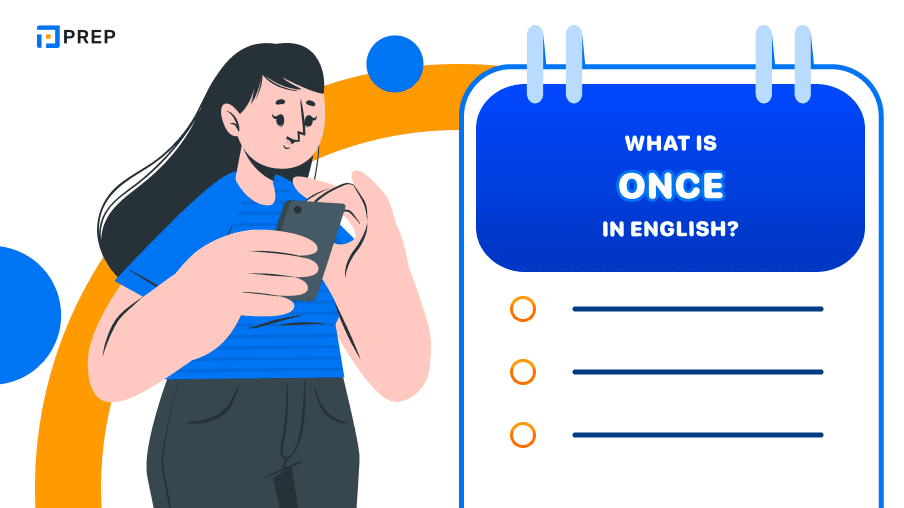
I. What is Once in English?
In English, “once” is a versatile word that can function as an adverb, a conjunction, and, in fewer cases, as a noun. Depending on how it's used in a sentence, its meaning and grammatical role change significantly.
Let’s break it down by its most common meanings:
Once as “One Time” – Adverb (Frequency): “Once” is frequently used to mean “one time”—an action that happened a single time in the past or might happen in the future.
- Example: I’ve only been there once.
- Example: You should try this dish at least once.
Once Meaning “At Some Time in the Past” – Adverb (Time): In narratives or storytelling, “once” can also refer to a non-specific moment in the past, often used for dramatic or literary effect.
- Example: She once lived in New York.
- Example: I once thought that was impossible.
Once as a Conjunction – Meaning “As Soon As” / “When”: When “once” is used as a conjunction, it introduces a dependent clause and signals that something will happen immediately after another event. This use is common in both spoken and written English and often relates to timing or conditions.
- Example: Once you finish your homework, you can play video games.
- Example: Once the sun sets, the temperature drops.
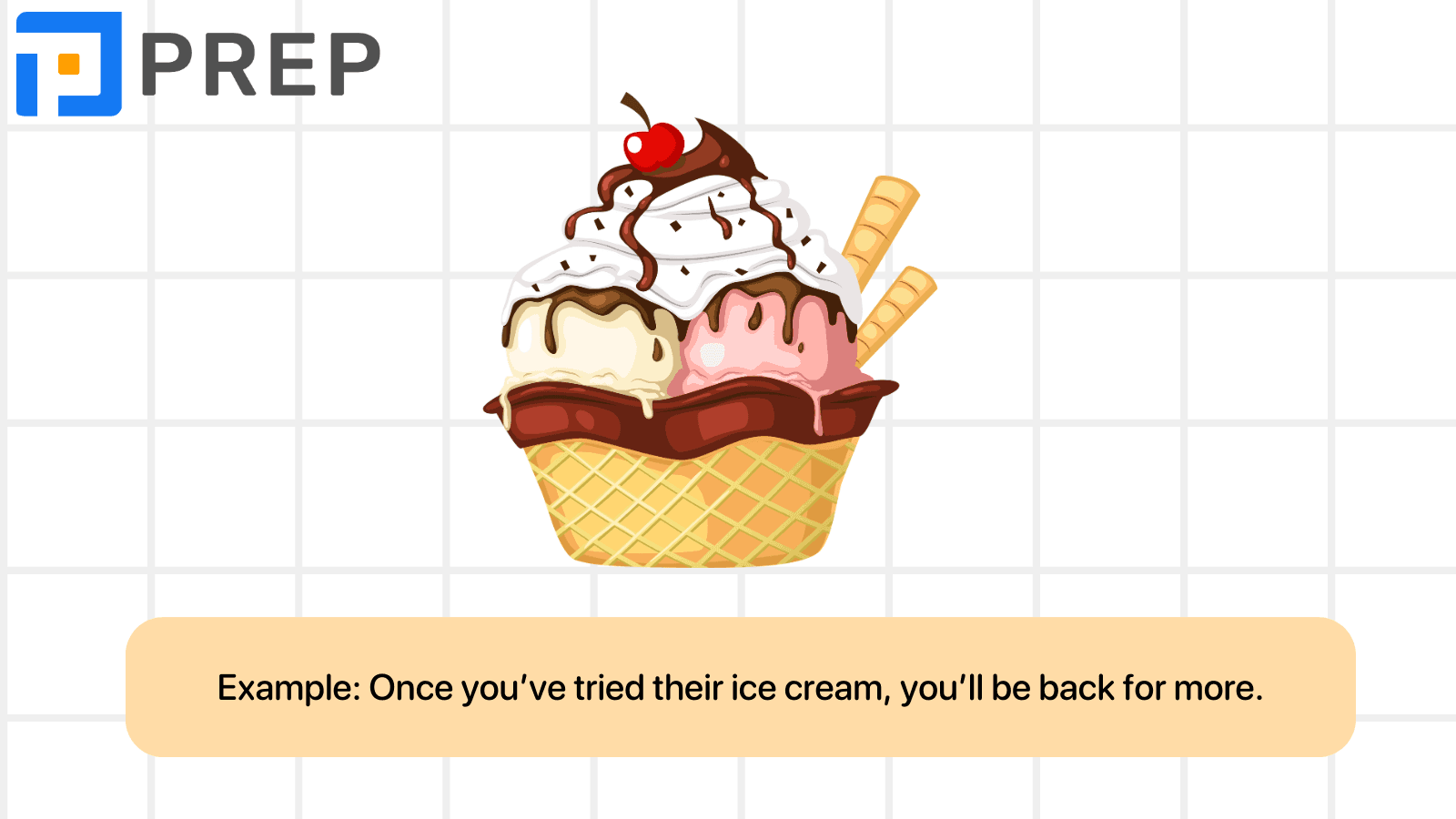
How to recognize the word type in a sentence:
- If “once” modifies a verb, it’s likely an adverb.
- If “once” introduces a clause, it’s functioning as a conjunction.
- If it is used with an article (e.g., “a once in a lifetime”), it may act as a noun or part of a compound noun/adjective phrase.
Understanding the various roles of “once” is the first step to mastering how and when to use it effectively in both communication and exams.
1. Common Uses of Once in English
The word "once" appears in a variety of English contexts, from casual conversations to formal writing. Below are the three most common ways "once" is used, with meanings, rules, and examples that show how it functions in real-world English.
“Once” as an Adverb
As an adverb, “once” can refer to either frequency (how many times) or a point in time in the past:
- Frequency (meaning "one time")
Example: I’ve eaten sushi just once in my life. - Time (meaning "at some point in the past")
Example: She once lived in Japan.
This usage is highly flexible and appears in both spoken and written English.
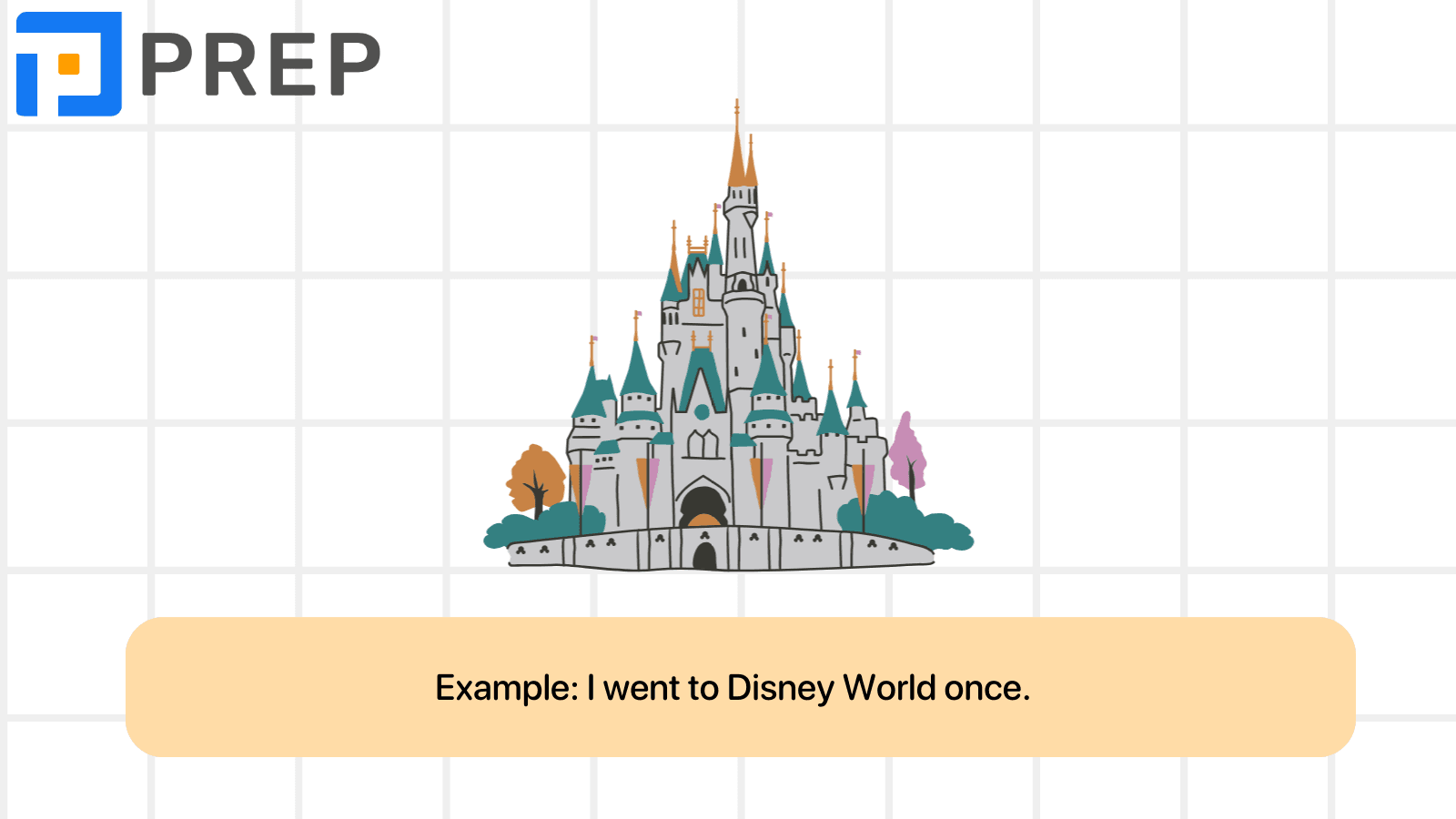
“Once” as a Conjunction
“Once” can function as a conjunction to connect two clauses and show that one action happens after another. It often means “as soon as” or “when”:
- Example: Once you understand the rules, grammar becomes easier.
- Example: Once the class ends, we’ll go for lunch.
In grammar terms:
- Structure: once + subject + verb, followed by the main clause
- Usage: Common in both conditional and time-related contexts
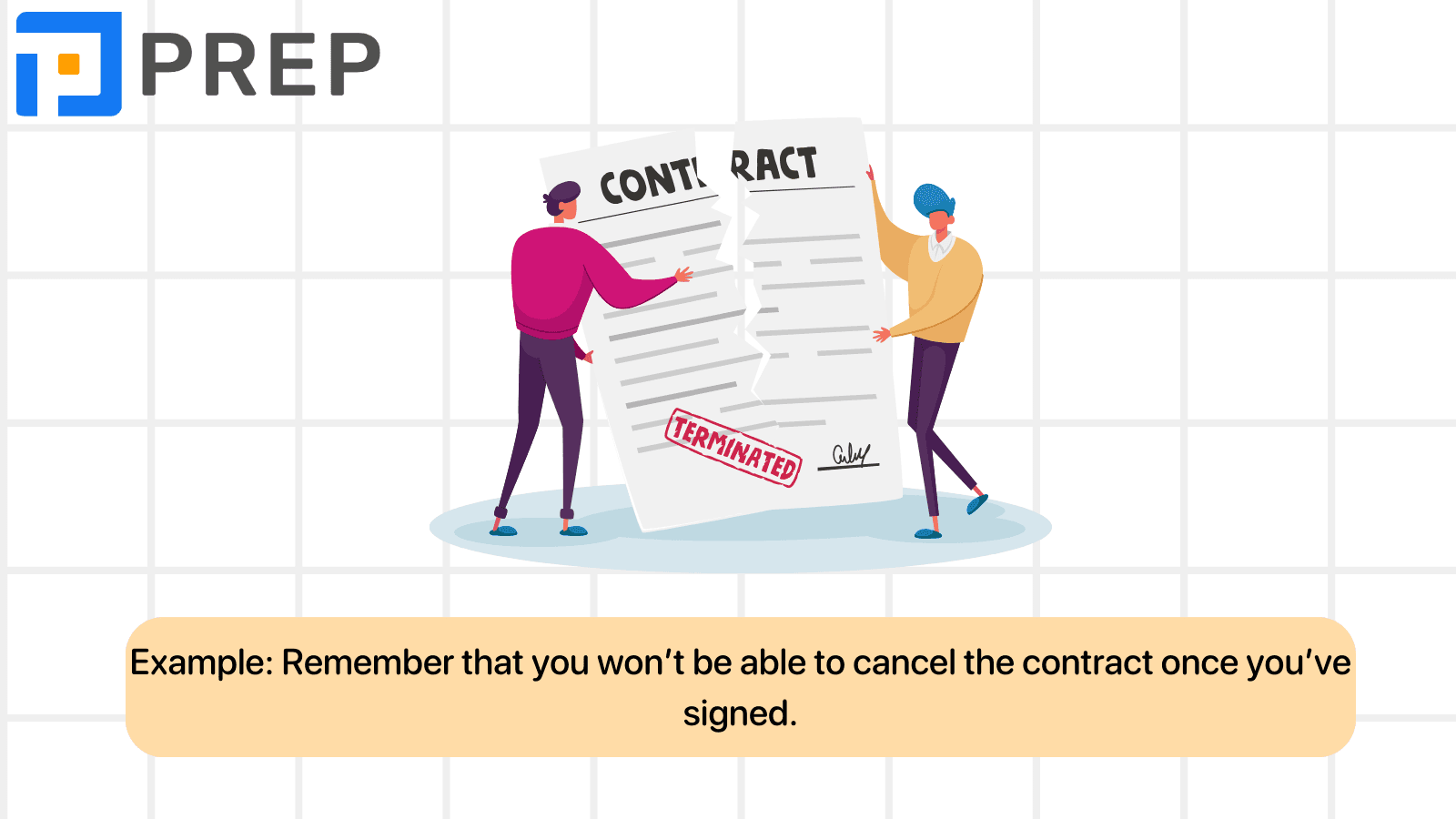
“Once” in Idioms and Expressions
"Once" also appears in many idiomatic expressions used in both informal and literary English. Some examples include:
- “Once upon a time”: A classic phrase used to begin fairytales or stories
Example: Once upon a time, there was a little girl who loved to explore. - “Once in a while”: Means occasionally or sometimes
Example: I only eat fast food once in a while. - “Once and for all”: To do something decisively or permanently
Example: Let’s solve this problem once and for all.
Understanding these expressions helps learners sound more natural and fluent in both conversation and writing.
2. Difference Between "Once" and Similar Phrases
While “once” is commonly used to indicate time or sequence, several English expressions contain similar vocabulary and can easily confuse learners. Let’s look at how “once” differs from other commonly mistaken phrases to avoid miscommunication in speaking or writing.
“Once” vs. “One Time”
-
“Once” is a more concise, standard way of saying “one time”, especially in writing.
Example (interchangeable):- She traveled to Paris once.
- She traveled to Paris one time.
-
“One time” is often more emphatic or conversational. “Once” tends to appear more in formal or written English.
Tip: In most cases, “once” sounds more natural and fluent, especially in exams or writing tasks.
“Once” vs. “At Once”
- “Once” = one time / when (as a conjunction)
Example: I’ll call her once I get home. - “At once” = immediately or simultaneously
Example: Come here at once!
Example: She was speaking and typing at once.
Key difference: "At once" expresses urgency or multiple actions at the same time, not frequency.
“Once” vs. “One Day”
- “Once” can refer to a past event or a condition in time.
Example: I once believed in that idea. - “One day” refers to a future event or an unspecified time in the past/future.
Example (future hope): One day, I’ll move abroad.
Example (past story): One day, we found an old photo album.
Tip: Use "once" when expressing something that already happened, and "one day" when imagining or narrating a moment (past or future).
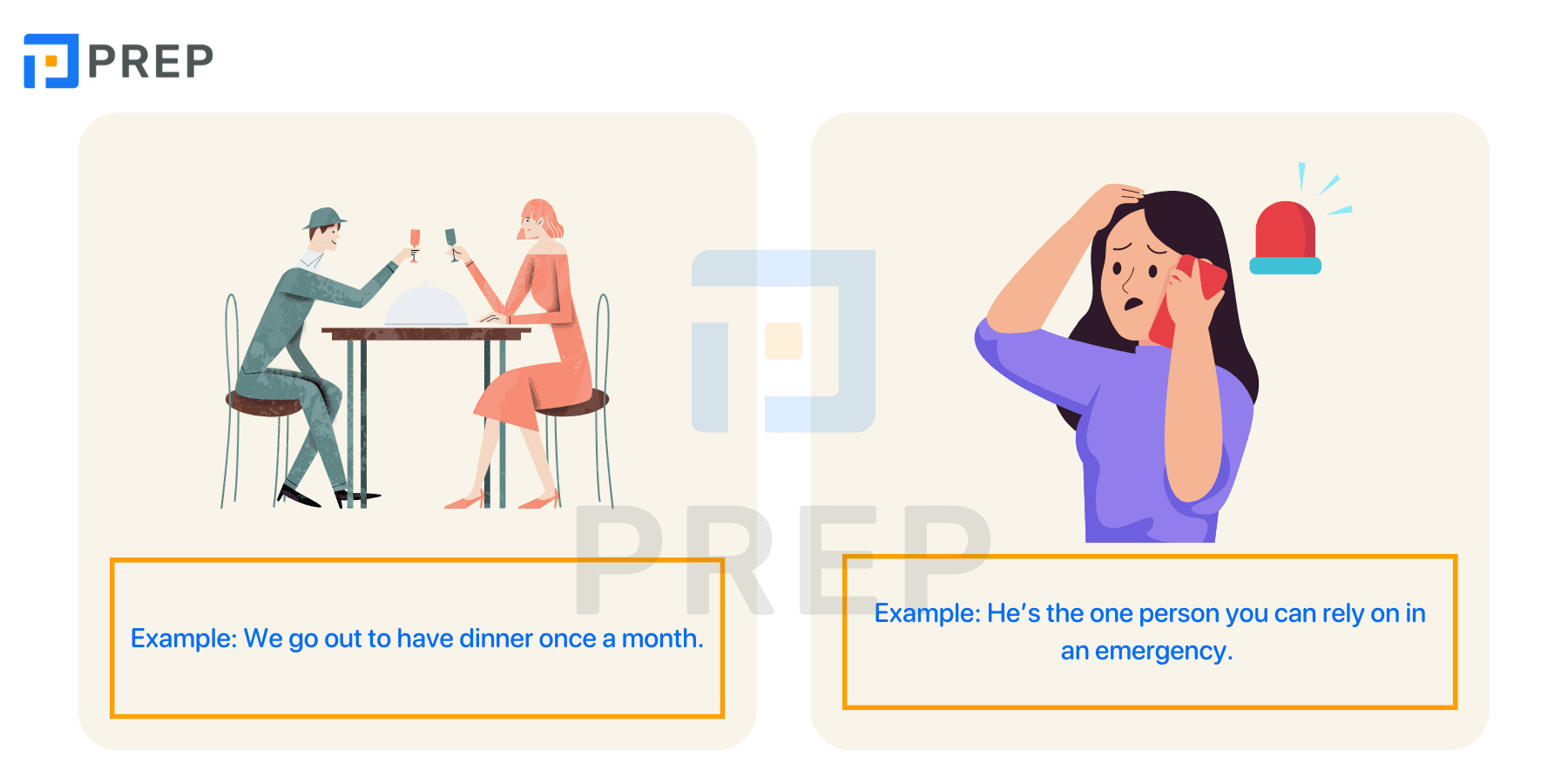
By learning to recognize these subtle differences, learners can avoid common mistakes and use each phrase with greater confidence and accuracy — whether in conversation, exams like IELTS/TOEIC, or academic writing.
You can also explore related contrasting terms, such as contrary in English, to enrich your vocabulary.
II. Examples of “Once” in Real Sentences
Understanding how “once” works in actual communication is essential for mastering its usage. Below are a variety of sentence examples that showcase how “once” appears in everyday conversations as well as in academic or professional contexts.
Everyday English – Speaking & Conversation
In informal or spoken settings, “once” is commonly used to describe time, frequency, or basic sequencing. Here’s how native speakers use it in conversations:
- I’ve only been there once, but I loved it.
- Once you get used to it, the job becomes easier.
- Let’s try that new café once we finish shopping.
- Once in a while, I like to disconnect from social media.
- He once told me he wanted to move to Spain.
These examples show how ‘once’ fits naturally in conversation, similar to other IELTS vocabulary for speaking
Academic and Professional Settings
In formal writing, presentations, or standardized tests, “once” is often used to express logical sequencing between events or conditions. It can also appear in idiomatic or transitional structures.
- Once the data has been verified, the report will be finalized.
- The researchers once believed this theory was universal.
- Once admitted to the university, students must complete orientation.
- The system automatically initiates a backup once the update is complete.
These structures are especially relevant in IELTS Writing Task 2, TOEIC Part 6, and university-level writing, where clarity in process, cause-effect, and time relationships is highly valued.
Through a mix of casual and formal examples, learners can better understand when and how to apply “once” across various communication settings — improving their grammar, vocabulary, and English pronunciation for more accurate and fluent communication.
III. Exercises on Once in English with detailed answer
Understanding how to use “once” correctly requires not just theory but also practice. Below are three types of exercises that cover the main functions of “once” as an adverb and conjunction, along with answers and explanations to guide your learning.
Exercise 1: Fill in the Blank
Complete each sentence with the word “once”, if it fits the context:
- She has only been abroad ______ in her life.
- ______ you finish your essay, submit it online.
- I ______ thought this topic was too hard to learn.
- He answered all the questions ______ and confidently.
- You’ll get the hang of it ______ you've practiced enough.
Exercise 2: Choose the Correct Option
Select the option that best completes each sentence.
- We’ll start the meeting (once / one time) everyone arrives.
- He visited Japan (once / at once) in 2019.
- I’ll call you (once / one day) I reach home.
- She submitted the form (at once / once) as instructed.
- They (once / one day) worked together at the same company.
Exercise 3: Rewrite with “Once”
Rewrite the following sentences by using “once” to keep the same meaning.
- As soon as I get the confirmation, I will book the ticket.
- When the machine finishes loading, it shuts down.
- I went to Italy only one time.
- She used to be a professional dancer years ago.
- After you complete the lesson, start the quiz.
Answer
|
Exercise 1 |
Exercise 2 |
Exercise 3 |
|
|
|
IV. Start Your IELTS Journey
Hopefully, the knowledge about Once in English that PREP shared in this article has helped you expand and deepen your understanding of what Once is and how to use Once. If your goal is to achieve a Band 7+ or higher, these IELTS resources below are for you :
-
IELTS learning online: Master IELTS With Us!

Hi I'm Chloe, and I am currently serving as an Product Content Administrator at Prep Education. With over five years of experience in independent online IELTS study and exam preparation, I am confident in my ability to support learners in achieving their highest possible scores.
Comment
Premium content
View allPersonalized roadmap
Most read












